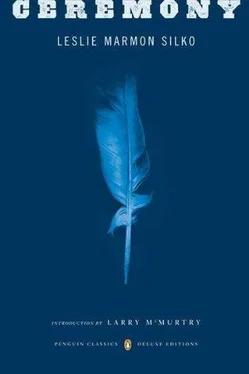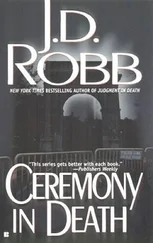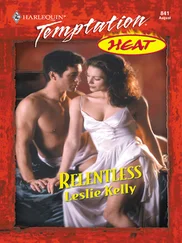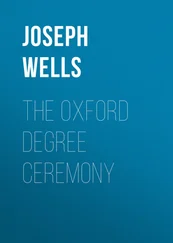Leslie Silko - Ceremony
Здесь есть возможность читать онлайн «Leslie Silko - Ceremony» весь текст электронной книги совершенно бесплатно (целиком полную версию без сокращений). В некоторых случаях можно слушать аудио, скачать через торрент в формате fb2 и присутствует краткое содержание. Год выпуска: 2006, Издательство: Penguin Classics, Жанр: Современная проза, на английском языке. Описание произведения, (предисловие) а так же отзывы посетителей доступны на портале библиотеки ЛибКат.
- Название:Ceremony
- Автор:
- Издательство:Penguin Classics
- Жанр:
- Год:2006
- ISBN:нет данных
- Рейтинг книги:5 / 5. Голосов: 1
-
Избранное:Добавить в избранное
- Отзывы:
-
Ваша оценка:
- 100
- 1
- 2
- 3
- 4
- 5
Ceremony: краткое содержание, описание и аннотация
Предлагаем к чтению аннотацию, описание, краткое содержание или предисловие (зависит от того, что написал сам автор книги «Ceremony»). Если вы не нашли необходимую информацию о книге — напишите в комментариях, мы постараемся отыскать её.
Tayo's quest leads him back to the Indian past and its traditions, to beliefs about witchcraft and evil, and to the ancient stories of his people. The search itself becomes a ritual, a curative ceremony that defeats the most virulent of afflictions — despair.
Ceremony — читать онлайн бесплатно полную книгу (весь текст) целиком
Ниже представлен текст книги, разбитый по страницам. Система сохранения места последней прочитанной страницы, позволяет с удобством читать онлайн бесплатно книгу «Ceremony», без необходимости каждый раз заново искать на чём Вы остановились. Поставьте закладку, и сможете в любой момент перейти на страницу, на которой закончили чтение.
Интервал:
Закладка:
Tayo opened it for him. He opened one for himself and leaned back on the seat. Beer made the feeling recede and slowed down the beating of his heart. The truck’s motion and the beer were soothing; the steel and glass closed out everything. The sky, the land were distant then; trees and hills moved past the windshield glass like movie film. It would be easy to get lost in this place of theirs, where the past, even a few hours before, suddenly lost its impact and seemed like a vague dream compared to these sensations: the motion, vibrations of wheels against the road, the warmth of beer in the belly, and the steel cab snug around them. He would rest there, and not think about the night before. He needed to rest for a while, and not think about the story or the ceremony. Otherwise, it would make him crazy and even suspicious of his friends; and without friends he didn’t have a chance of completing the ceremony.
She had been right once already when she told him to leave the springs. So he would hang around with Harley and Leroy; everyone would understand that: riding around, drinking with his buddies. They wouldn’t be suspicious then; they wouldn’t think he was crazy. He’d just be another drunk Indian, that’s all.
He woke up sweating. The sun was shining through the windshield, and the windows were rolled up. The truck was parked at the foot of a rocky little hill covered with cholla. Harley and Leroy were gone. The heat in the cab made him weak and sluggish. He rolled down the window and hung his head out. The beer vomit ran down the truck door into dry weeds. His head was pounding, and he was thirsty. He got out of the truck and could hardly stand up; the muscles of his legs were stiff. He looked around to see where Harley and Leroy were. The country was dry, and the hills were covered with dark lava rock. The earth was eroded to gray clay, and deep arroyos cut through the length of the valley between the mesas. These were the hills northwest of Cañoncito. He sat down on a big gray rock by a cholla. Grayish green salt bushes had taken over the areas between the crisscross of big arroyos. South, in the distance, he could see one big cottonwood tree, the only bright green in that valley. It was growing on the edge of the deepest arroyo, its web of roots exposed, held upright only by a single connecting root. The bank of the arroyo was undercut so deeply that a strong gust of wind would topple the big tree.
A dry hot wind glided up and down the canyon restlessly, shaking the salt bushes and sweeping dust over the tire tracks. His head hurt every time he took a step; shock waves of a foot against the ground registered on skull drums. He was looking for footprints. He listened, and there was nothing but the sound of the wind, like a hawk sweeping close to the ground, whirring wings of wind that called back years long past and the people lost in them, all returning briefly in a gust of wind. The feeling lasted only as long as the sound, but he wanted to go with them, to be swept away. It was difficult then to call up the feeling the stories had, the feeling of Ts’eh and old Betonie. It was easier to feel and to believe the rumors. Crazy. Crazy Indian. Seeing things. Imagining things.
The sun was hot and the sweat was crawling down his head like little black ants. Then he saw their footprints going up the hill; he could see the pebbles and rocks they had knocked loose and the dry grass crushed under boot heel prints.
Tayo was halfway to the top of the hill before he stopped; suddenly it hit him, in the belly, and spread to his chest in a single surge: he knew then that they were not his friends but had turned against him, and the knowledge left him hollow and dry inside, like the locust’s shell. He was not sure why he was crying, for the betrayal or because they were lost. Then he heard voices, low and steady tones from the top of the hill. He didn’t like the way his heart pounded, because it kept him from hearing, but his head was clear and his legs were solid. Fear made him remember important things. He moved down the hill, careful not to knock loose any rocks or step in the dry tumbleweeds. He knew why he had felt weak and sick; he knew why he had lost the feeling Ts’eh had given him, and why he had doubted the ceremony: this was their place, and he was vulnerable.
He lifted the hood of the truck and started pulling at the ignition wires, trying to remember how the guys overseas hot-wired Army jeeps. He reached under the truck seat and found a rusty screwdriver. The wires were a tangled bundle and his hands were shaking. His mouth was dry and his tongue stuck to his lips when he tried to moisten them. He looked up at the top of the hill, and then around at the sky and the canyon. The sun was moving down in the sky, but the heat still danced above the salt bushes in the canyon. He slipped the screwdriver into his hip pocket and started running.
When years before they had first come to the people living on the Cebolleta land grant, they had not said what kind of mineral it was. They were driving U.S. Government cars, and they paid the land-grant association five thousand dollars not to ask questions about the test holes they were drilling. The cloudy orange sandstone mesas and the canyons between them were dry that year; ever since the New Mexico territorial government took the northeast half of the grant, there had not been enough land to feed the cattle anyway. It was overgrazed; rain eroded big arroyos in the gray clay, and the salt bush took hold. There was nothing there the people could use anyway, no silver or gold. The drought had killed off most of the cattle by then, so it really didn’t matter if a square mile of land around the mine area was off limits, with high barbed-wire fences around it, and signs in both Spanish and English warning them to keep out.
Early in the spring of 1943, the mine began to flood with water from subterranean springs. They hauled in big pumps and compressors on flat-bed trucks from Albuquerque. The big trucks sank past their axles in the blow sand, and they hired men from Bibo and Moquino to dig around the tandem wheels and to attach tow chains from the trucks to the big tow truck that came. But later in the summer the mine flooded again, and this time no pumps or compressors were sent. They had enough of what they needed, and the mine was closed, but the barbed-wire fences and the guards remained until August 1945. By then they had other sources of uranium, and it was not top secret any more. Big gray vans came and hauled the machinery away. They left behind only the barbed-wire fences, the watchman’s shack, and the hole in the earth. Cebolleta people salvaged lumber and tin from the shack, but they had no use for the barbed wire any more; the last bony cattle wandering the dry canyons had died in choking summer duststorms.
Waves of heat caught him, and his legs and lungs were vapor without sensation; only his memory of running and breathing kept him moving and alive. He stumbled and ran behind the sun, not following but dragged with it across arroyos, over mesas and hills. At sundown he was lying on the sand at the bottom of the long mesa, feeling the heat recede from the air and from his body into the earth. The wind came up and he shivered.
He crawled through the strands of barbed wire. Twilight was giving way to darkness. He scooped water off the top of thick green moss that clogged the steel water trough under the windmill. The water was still warm from the sun and it tasted bitter. He sat on the edge of the trough and looked across the wide canyon at the dark mine shaft. Maybe the uranium made the water taste that way. The sandstone and dirt they had taken from inside the mesa was piled in mounds, in long rows, like fresh graves.
Old Grandma told him while he was still sick and weak, lying in the darkened room. She shuffled in and sat down on the edge of his bed. “I have been thinking of something,” she said. “It happened while you were gone. I had to get up, the way I do, to use the chamber pot. It was still dark; everyone else was still sleeping. But as I walked back from the kitchen to my bed there was a flash of light through the window. So big, so bright even my old clouded-up eyes could see it. It must have filled the whole southeast sky. I thought I was seeing the sun rise again, but it faded away, and by that time all the dogs around here were barking, like the time that bear was prowling around the trash pile. You remember that, sonny, how they barked. ‘My, my,’ I said to myself, ‘I never thought I would see anything so bright again.’” She was patting his arm as she talked, tapping out the story with her hand. “Your auntie laughed at me when I told her what I saw. But later on that day, Romero came around. He said he saw it too. So bright that it blinded him for a moment; then later on he could still see it flashing when he closed his eyes.” She paused, as if she were trying to think of the right words. “You know, I have never understood that thing I saw. Later on there was something about it in the newspaper. Strongest thing on this earth. Biggest explosion that ever happened — that’s what the newspaper said.” She was shaking her head slowly from side to side. “Now I only wonder why, grandson. Why did they make a thing like that?”
Читать дальшеИнтервал:
Закладка:
Похожие книги на «Ceremony»
Представляем Вашему вниманию похожие книги на «Ceremony» списком для выбора. Мы отобрали схожую по названию и смыслу литературу в надежде предоставить читателям больше вариантов отыскать новые, интересные, ещё непрочитанные произведения.
Обсуждение, отзывы о книге «Ceremony» и просто собственные мнения читателей. Оставьте ваши комментарии, напишите, что Вы думаете о произведении, его смысле или главных героях. Укажите что конкретно понравилось, а что нет, и почему Вы так считаете.












